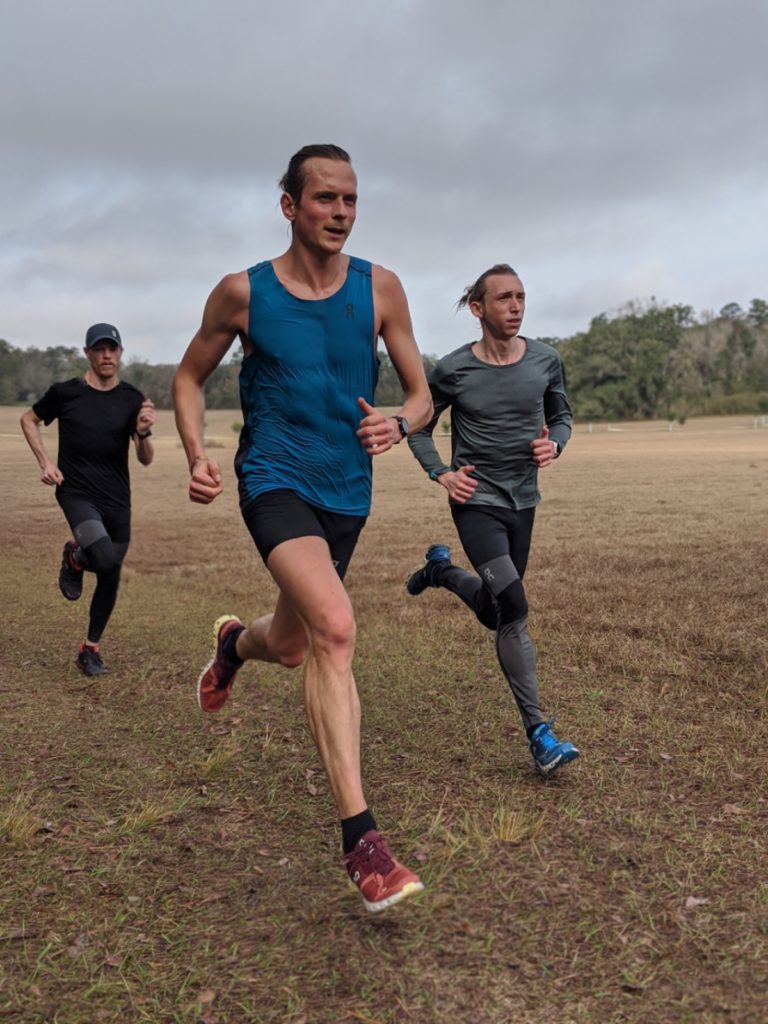Improve Your Marathon Training With a Step Off The Roads
The marathon possesses an allure like no other distance race. As the longest of Olympic running events, the marathon demands of its participants aerobic strength and durability as well as a particular mental fortitude not seen in the shorter events. The popularity of marathoning has exploded as well in recent years with no less than a 6 fold jump in total global marathons in the last 2 decades.
With (pre and likely post pandemic) marathon opportunities increasingly available, more of today’s runners (particularly newer runners) are racing 3-4 marathons annually and more, becoming specialists in the Queen’s Distance almost entirely. This “marathon or more each season” approach can have its short term benefits. However, long term improvement in the marathon requires the intermittent honing of economy, balance, and power output skills.
These critical physiological and biomechanical elements are best improved by shorter and non-road based events. Namely, Cross Country and Track & Field.
The Track
Many of the runners who competed in the 1970s and 1980s came to the marathon from a background either in high school, collegiate or club based track & field. These were athletes who made the natural transition from shorter track races such as the mile or 5,000m upwards toward the marathon.
Today we are seeing more athletes beginning their competitive running in their 30s, 40s, 50s and later. As such many of these individuals lack much of the explosivity and athleticism held by those with track backgrounds. For those who have rarely or never experienced track racing, opportunities are now widely available for runners of every age and ability throughout the country.
Here in the South the Atlanta Track Club hosts Tuesday night All-Comers meets in which runners ages 5-85 toe the line for races 100m – 5,000m. These provide all category of runners a unique opportunity to improve speed and physiological economy. All comers situations like these are available in most medium to larger cities and provide a unique twist to most road runners’ normal racing schedule.
Cross Country to Support Marathon Training

For many road runners the thought of racing on grass and dirt, replete with its’ uneven footing and undulating terrain, is akin to having bamboo shoots under the fingernails. Lovers of even footing and rhythm tend to view harriers as an entirely separate category of runner. However, be aware that from the cream of the crop down, cross country has a long history of assisting marathoners in their 26.2 preparation. And it can be equally effective for you as well.
I am often reminded of Bill Rodgers’ Individual Bronze Medal at the World Cross Country Championships in 1975 a mere 4 weeks prior to breaking the American Marathon Record (2:09.55) in winning his first Boston. Cross Country running improves balance and proprioception, something sorely lacking amongst the general running public.
Moreover, time on the grass will augment critical “ankle-down” power with improved plantar and dorsiflexion. Cross Country events with open and age-group categories can be found throughout the country, particularly in the fall months. Additionally club and collegiate programs often have XC races which pair their team competitions with individual races.
Shorter Roads
For much the same reason top 1500m & 5,000m runners often contest longer races early in their build-ups to improve overall strength and related anaerobic threshold, marathon runners will always be well served by occasionally leaving their comfort zone and moving down to “economy” based races of 5k, 8k and 10k.
Once every few targeted training cycles (every 18-24 months) leave your typical marathon training and racing schedule and engage a sequence where the targets include races an hour or shorter. Your marathon legs will thank you and physiologically your anaerobic tolerance will receive a much needed polishing.
Success in the marathon requires excellence in both aerobic fitness and durability, both physical and mental. However, the skills which can and will be derived from both non-road based events such as Cross Country & Track as well as shorter road races from the 10k down, will provide each of you with tools not found in the typical marathoner.
I’ve long been an advocate for earlier introductions to the marathon event. In light of that this month’s suggestion to be open to a season away from one may come I realize as slightly ironic. However, as it relates to specifically to veteran marathon runners, as you plan out training and racing schedules going forward, I recommend a twist: give yourself the best chance for long term marathon success by moving away from it, even if for only a season or a year.